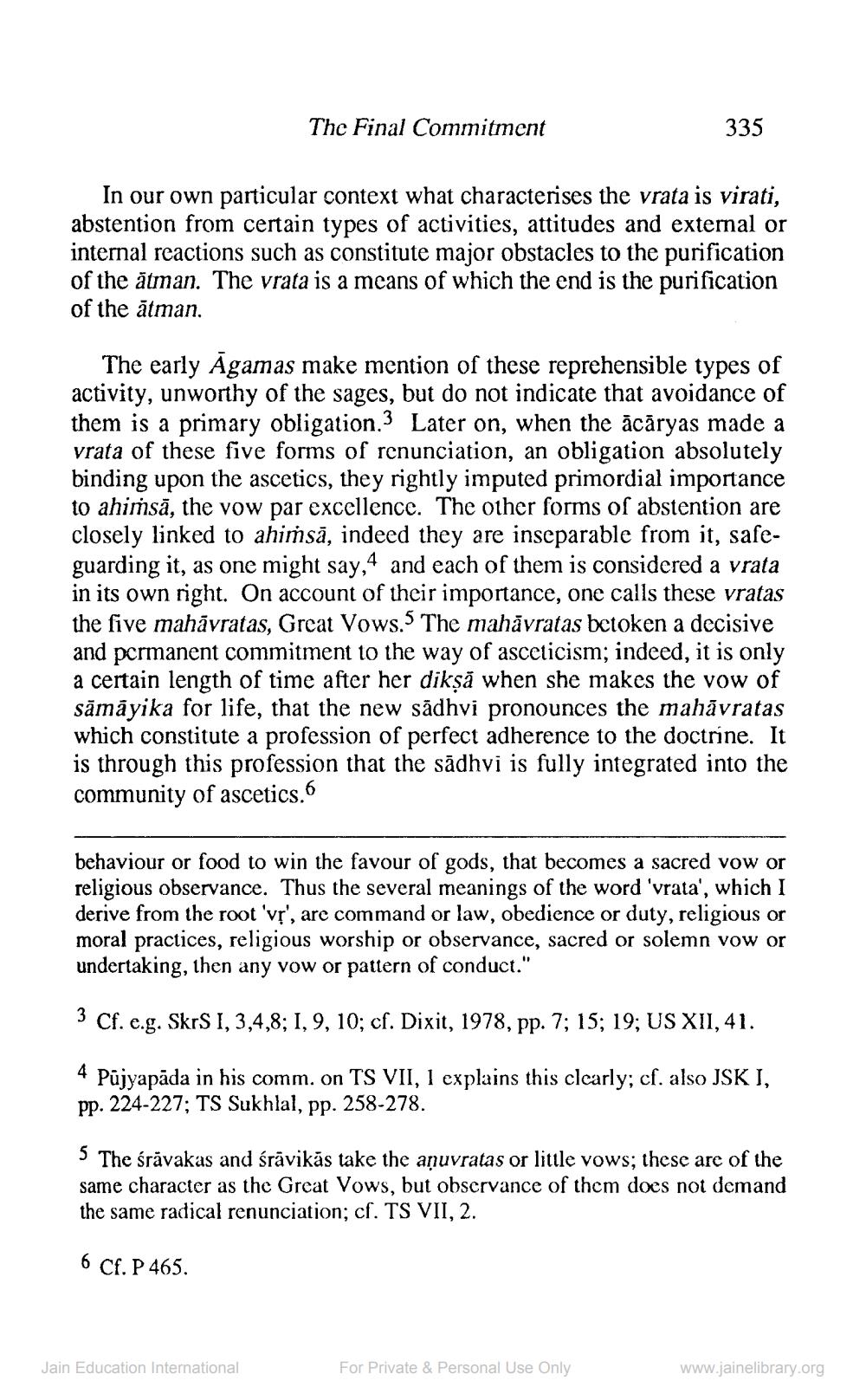________________
The Final Commitment
In our own particular context what characterises the vrata is virati, abstention from certain types of activities, attitudes and external or internal reactions such as constitute major obstacles to the purification of the atman. The vrata is a means of which the end is the purification of the ātman.
335
The early Agamas make mention of these reprehensible types of activity, unworthy of the sages, but do not indicate that avoidance of them is a primary obligation.3 Later on, when the ācāryas made a vrata of these five forms of renunciation, an obligation absolutely binding upon the ascetics, they rightly imputed primordial importance to ahimsa, the vow par excellence. The other forms of abstention are closely linked to ahimsā, indeed they are inseparable from it, safeguarding it, as one might say,4 and each of them is considered a vrata in its own right. On account of their importance, one calls these vratas the five mahāvratas, Great Vows.5 The mahāvratas betoken a decisive and permanent commitment to the way of asceticism; indeed, it is only a certain length of time after her dikṣa when she makes the vow of sāmāyika for life, that the new sadhvi pronounces the mahāvratas which constitute a profession of perfect adherence to the doctrine. It is through this profession that the sadhvi is fully integrated into the community of ascetics.6
behaviour or food to win the favour of gods, that becomes a sacred vow or religious observance. Thus the several meanings of the word 'vrata', which I derive from the root 'vr', are command or law, obedience or duty, religious or moral practices, religious worship or observance, sacred or solemn vow or undertaking, then any vow or pattern of conduct."
Cf. c.g. SkrS I, 3,4,8; I, 9, 10; cf. Dixit, 1978, pp. 7; 15; 19; US XII, 41.
3
4 Pujyapāda in his comm. on TS VII, I explains this clearly; cf. also JSK I, pp. 224-227; TS Sukhlal, pp. 258-278.
Jain Education International
5 The śrävakas and śrāvikās take the aṇuvratas or little vows; these are of the same character as the Great Vows, but observance of them does not demand the same radical renunciation; cf. TS VII, 2.
6 Cf. P 465.
For Private & Personal Use Only
www.jainelibrary.org




